Plastic is everywhere in our lives, with 1.8 billion metric tons projected to be produced globally by 2030, according to the World Economic Forum. This highlights the urgent need for better choices. This article will explore the main factors in choosing between recycled or virgin plastics, helping businesses make informed decisions that support sustainability and meet customer expectations.
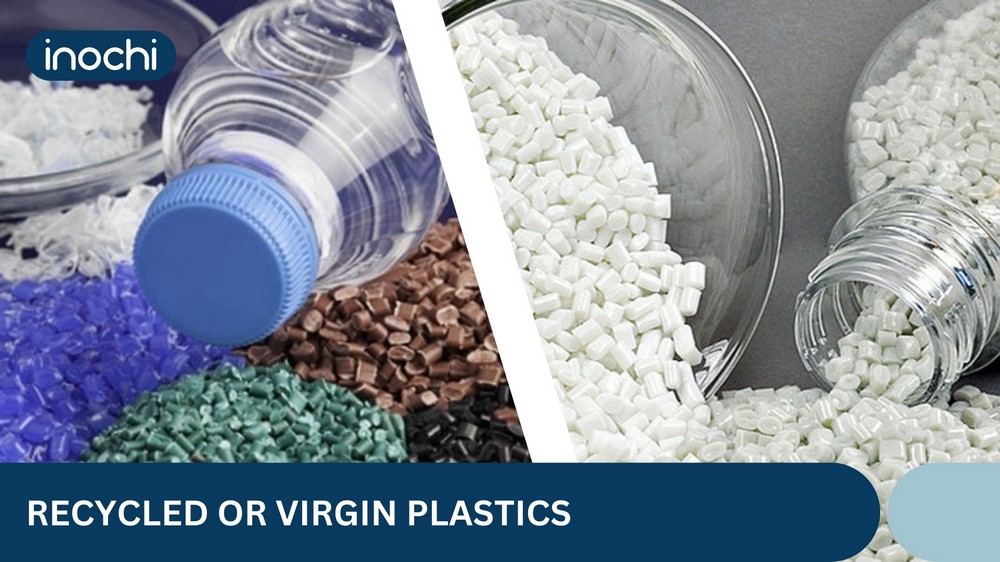
1. Simple Definition of Recycled and Virgin Plastics
Recycled Plastics are made from items that have already been used, like plastic bottles or containers. After these items are collected, they are cleaned, processed, and turned into new products. This helps reduce waste and makes use of materials that would otherwise end up in landfills.
Virgin Plastics, on the other hand, are new materials created from raw resources like oil or natural gas. These have never been used before and are made specifically for producing new plastic products. Using virgin plastics often means starting from scratch, which can use more energy and resources.
In short, recycled plastics come from old items, while virgin plastics are brand new materials.
2. Why Recycled or Virgin Plastic Matters?
Choosing between recycled and virgin plastics is important for both the environment and the economy. Here are some key reasons why this choice matters:
- Environmental Impact: Plastic pollution is a huge problem. The Ellen MacArthur Foundation reports that about 11 million tons of plastic end up in our oceans every year, which equals to 100 thousand blue whales. This harms wildlife and ecosystems. By using recycled plastics, we can help reduce this waste.
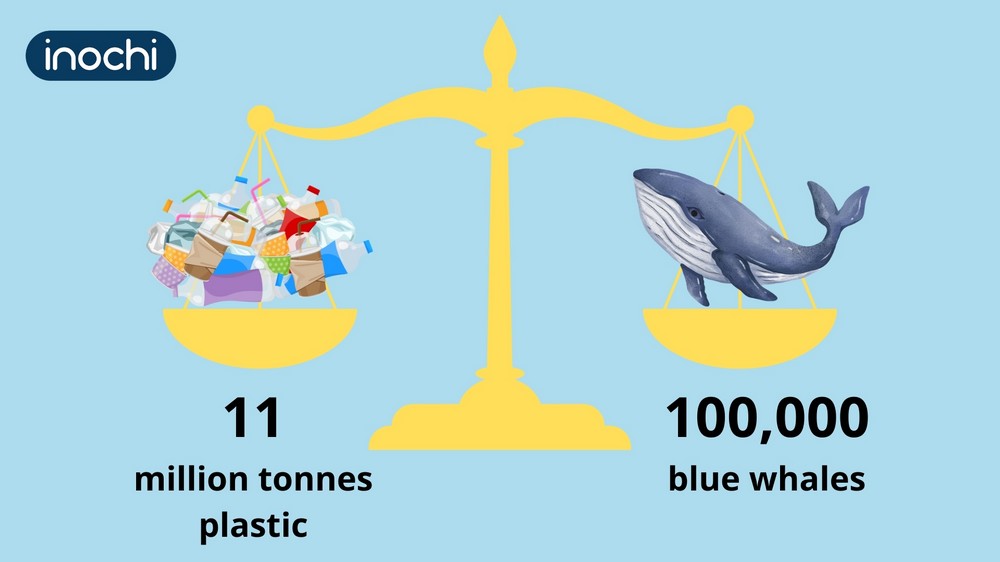
- Resource Conservation: Making virgin plastics requires a lot of resources. For example, producing plastic from raw materials uses up to three times more energy than using recycled materials. By choosing recycled plastics, we save energy and reduce our reliance on fossil fuels.
- Consumer Demand: More people want to buy products that are eco-friendly. A survey by Nielsen found that 73% of global consumers are willing to change their buying habits to help the environment when considering recycled or virgin plastics. Businesses that use recycled materials can attract these customers.
- Regulatory Pressure: Many governments are starting to enforce stricter rules on plastic use. For instance, some countries like the EU, Germany, France, etc. have set targets for using a certain percentage of recycled materials in products. Companies that adapt to these changes will be better positioned for the future.
3. Pros and Cons: A Balanced Perspective
To make it easier to understand, we created a table comparing the pros and cons of each type. This will help you know which one (recycled or virgin plastics) you need for your business or even your daily life.
3.1. Pros and Cons of Virgin Plastics
| Virgin plastics | Pros | Cons |
| – Superior strength and durability | – Higher carbon footprint | |
| – Consistent quality and performance | – More expensive | |
| – Pure and clean | – Contributes significantly to plastic waste and depletes natural resources | |
| – Versatile for various applications | – Faces increasing regulatory scrutiny | |
| – Often cheaper in the short term | – Long-term costs associated with waste disposal |
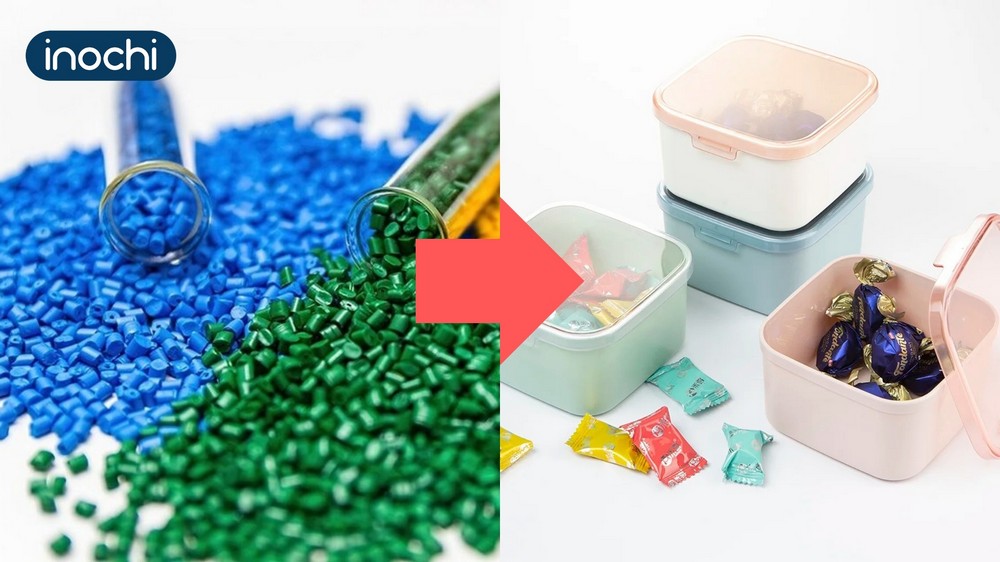
3.2. Pros and Cons of Recycled Plastics
| Recycled plastics | Pros | Cons |
| – Reduces plastic waste | – Quality can vary based on recycling process | |
| – Conserves natural resources and decreases energy consumption | – May have lower strength than virgin plastics | |
| – Supports a circular economy | – Limited availability of certain types | |
| – Cost-saving | – May encounter issues if using unreliable machines or incompetent workers |
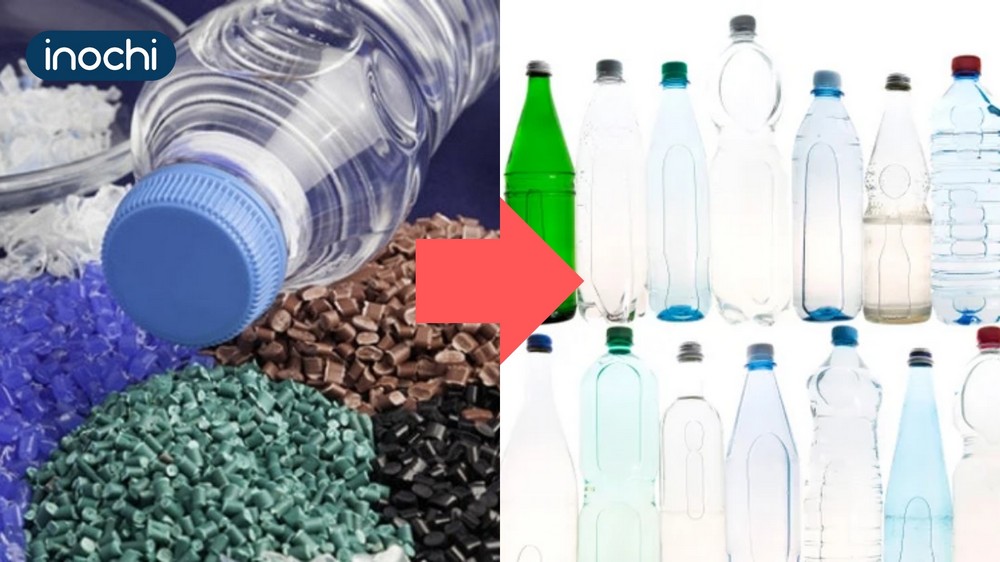
A successful case study of using recycled plastics: Coca Cola with the initiative called “World Without Waste”.
Coca-Cola launched its “World Without Waste” initiative, aiming to collect and recycle a bottle or can for every one sold by 2030. The company has committed to using 50% recycled content in its plastic bottles by 2030.
In 2021, Coca-Cola announced that it was already using 25% recycled plastic in its bottles. This initiative not only helps reduce the demand for virgin plastics but also encourages recycling efforts globally. By investing in recycling infrastructure and working with local communities, Coca-Cola is making significant strides toward a more sustainable future.
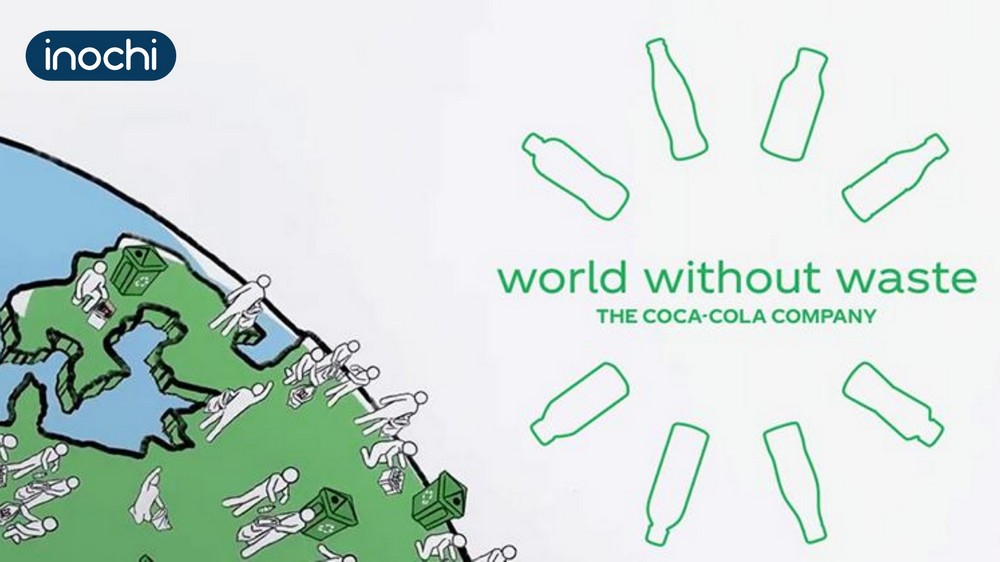
4. So, Which One is Better? Recycled or Virgin Plastics?
4.1. For Individuals
When choosing between recycled or virgin plastics, individuals should consider their impact on the environment.
Recycled plastics are better for the planet because they help reduce waste and use fewer natural resources. By selecting products made from recycled materials, you can support efforts to cut down on plastic pollution and save energy.
On the other hand, virgin plastics often have more consistent quality and durability, which can be important for certain products. However, they come with a higher environmental cost, as they require the extraction of new raw materials and produce more carbon emissions.
| For food storage purposes, you might want to consider using products made from virgin plastics to ensure food safety. Inochi Global’s kitchen products are a great choice because they can withstand high temperatures, from -30 degrees to 140 degrees Celsius, and they do not release any microplastics! Isn’t that amazing? |
So, if you care about sustainability and reducing waste, recycled plastics are the better option. Look for products labeled as made from recycled materials to make a positive impact.
4.2. For Businesses
For businesses, the decision between recycled or virgin plastics involves both environmental and economic factors.
Recycled plastics can be a smart choice as they often attract environmentally conscious consumers. Using recycled materials can enhance your brand image and meet the growing demand for sustainable products.
| However, some businesses may hesitate to switch to recycled plastics due to concerns about quality and performance, which can affect customer satisfaction. It’s important to note that advancements in recycling technology are improving the quality of recycled materials, making them more viable for various applications. |
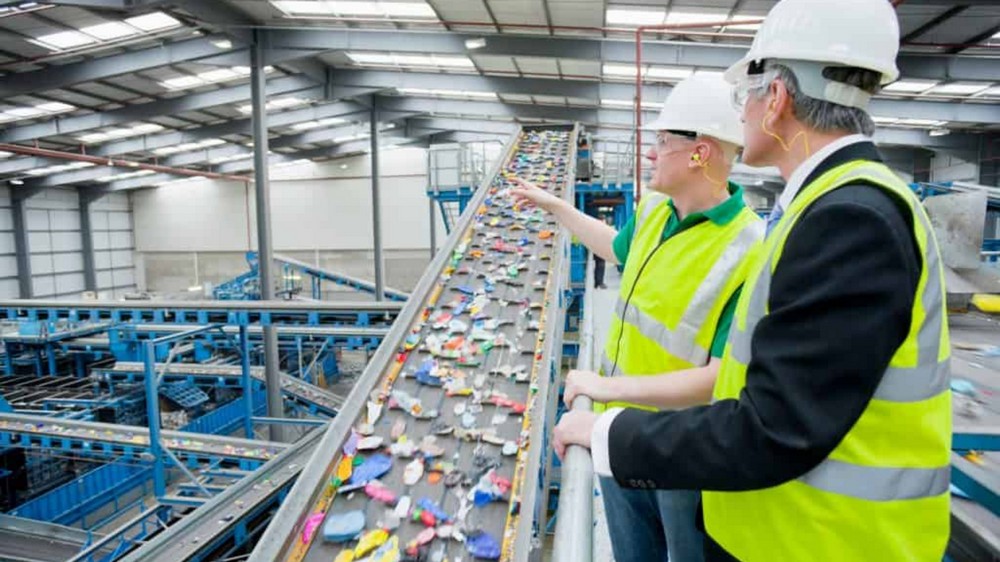
Virgin plastics, while providing consistent quality, can lead to higher environmental costs and may face increasing regulatory scrutiny in the future. As governments implement stricter regulations on plastic use, businesses that adapt to using recycled materials will be better positioned for long-term success.
Ultimately, the choice between the two options depends on your needs as a business. Assess the necessity based on their pros and cons, and you will determine what you truly require.
5. Our Opinion On This Topic
We are a manufacturer and distributor of plastic household goods in Vietnam, so we are very attentive to issues like these, especially when they impact the environment. Inochi Global’s products are all positioned in the premium segment, which is why they are made from virgin plastic to best serve our discerning customers.
But hold on, please stay calm! We are actively researching products made from recycled plastics and alternative solutions to positively contribute to environmental protection. You will see these changes reflected in our product lineup in the near future.
And to sum up, the best advice for businesses is to assess your product needs, consider the pros and cons of recycled or virgin plastics and try to use recycled ones when possible. This choice not only appeals to customers but also helps meet new regulations and improves your brand image.
6. FAQs
Is virgin plastic better than recycled plastic?
It depends on the context. Virgin plastic typically has more consistent quality and strength, but recycled plastic is better for the environment as it reduces waste and conserves resources.
What is the difference between virgin PVC and recycled PVC?
Virgin PVC is made from new raw materials, while recycled PVC is produced from post-consumer waste. Recycled PVC can be less durable but is more sustainable to the environment.
Is virgin plastic safe?
Yes, virgin plastic is generally safe for use in products, but concerns can arise depending on its application and the chemicals used in production. Always check for safety certifications.





